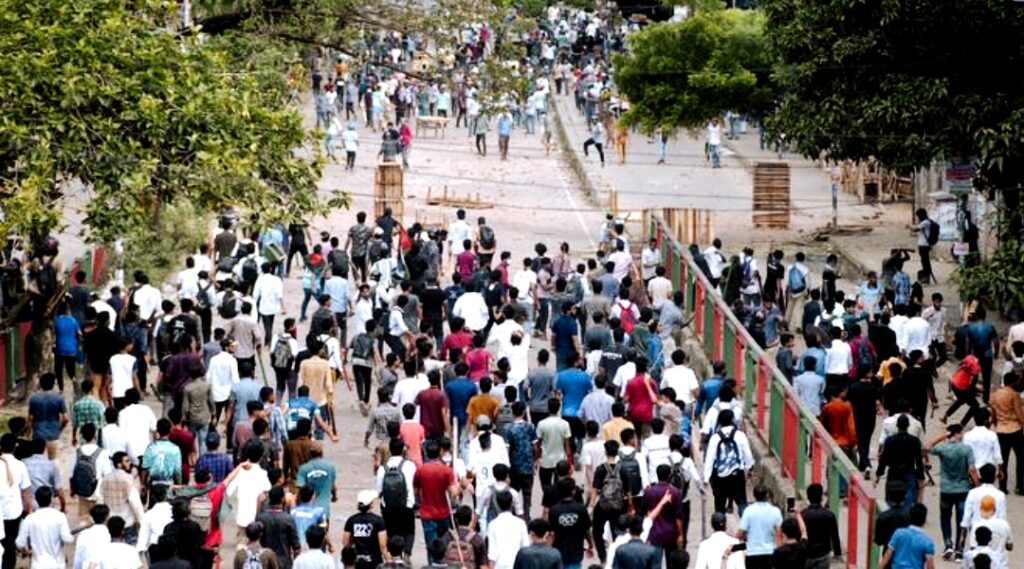Manashimaya

In 2024, Bangladesh faces deadly unrest over job quota disputes, leading to nationwide shutdowns of schools and universities. The recent turmoil erupted following the deaths of six individuals in protests against the government’s job reservation system. This system allocates a significant portion of public sector jobs to specific groups, including the children of war heroes from Bangladesh’s 1971 independence struggle, women, ethnic minorities, and the disabled.
The Roots of the Dispute
University students have been at the forefront of the protests, decrying the quota system as discriminatory. They demand a merit-based recruitment process, arguing that the current system unfairly benefits certain groups. The unrest in Bangladesh over job quota disputes has been particularly intense in cities like Dhaka and Chittagong, where student groups clashed violently, resulting in numerous injuries.
Government Response and Blame Game
The government’s response has been to blame opposition parties for the violence. Law Minister Anisul Huq accused the opposition groups Jamaat-e-Islami and the Bangladesh Nationalist Party (BNP) of infiltrating the anti-quota movement and inciting unrest. This narrative has further polarised the situation, as Bangladesh faces deadly unrest over job quota disputes.
Historical Context and Legal Battles
In 2018, following similar protests, Prime Minister Sheikh Hasina’s government abolished the job quota system. However, a court ruling in early June 2024 reinstated the quotas, sparking the latest wave of protests. Critics argue that the reinstated system benefits pro-government groups, exacerbating tensions as Bangladesh faces deadly unrest over job quota disputes.
Student Protests and Government Crackdown
Student groups have been relentless in their demonstrations, blocking major roads and highways, bringing traffic to a standstill. The students’ anger was further fueled by comments attributed to Prime Minister Hasina, allegedly comparing anti-quota protestors to razakars, a term used for collaborators during the 1971 war. This comparison has incited further violence and deepened the sense of injustice among the protestors, as Bangladesh faces deadly unrest over job quota disputes.
International and Domestic Reaction
The international community has taken notice of the situation. UN Secretary-General António Guterres called on the Bangladeshi government to protect demonstrators from violence. Domestically, the government has increased security measures, deploying the paramilitary Border Guards Bangladesh in key cities to maintain order, as Bangladesh faces deadly unrest over job quota disputes.
The Path Forward
The legal system’s involvement continues to play a crucial role. The Supreme Court of Bangladesh has suspended the current quota system, with a hearing scheduled for 7 August. Students have been allowed to present their cases in court, a development that could shape the future of public sector recruitment as Bangladesh faces deadly unrest over job quota disputes.
The Human Impact
Amidst the political and legal battles, the human cost of the unrest is significant. Families of those killed in the clashes are mourning their losses, and many injured students are recovering from violent encounters. The social fabric of the nation is being tested as Bangladesh faces deadly unrest over job quota disputes.
Conclusion
As Bangladesh faces deadly unrest over job quota disputes, the nation stands at a crossroads. The outcome of the legal hearings and the government’s response to ongoing protests will determine the future direction of public sector employment policies. The call for merit-based recruitment versus the existing quota system remains a contentious issue, reflecting broader struggles within Bangladeshi society.
